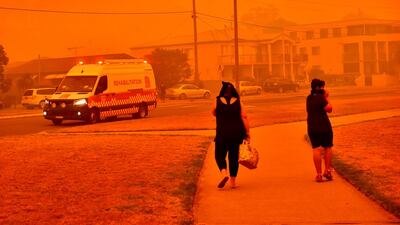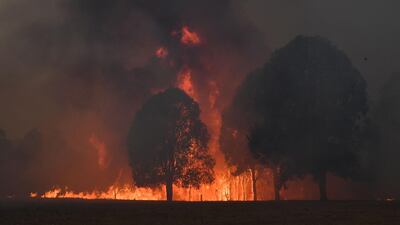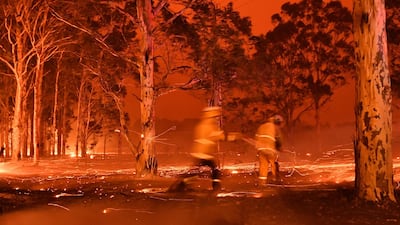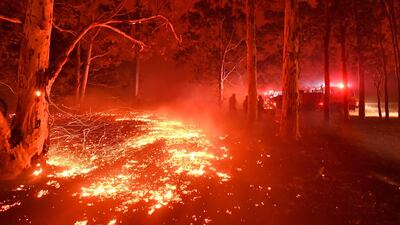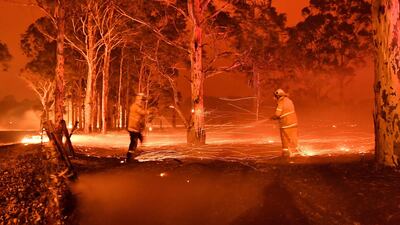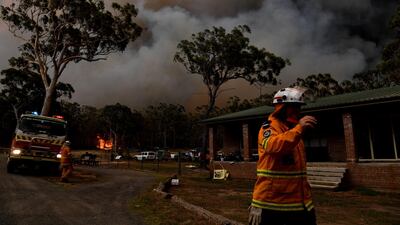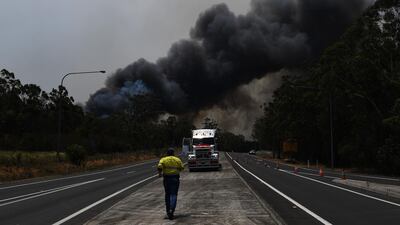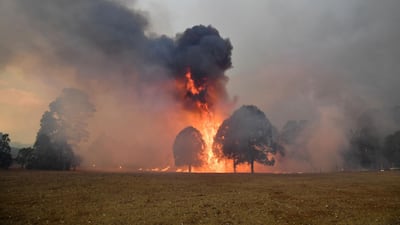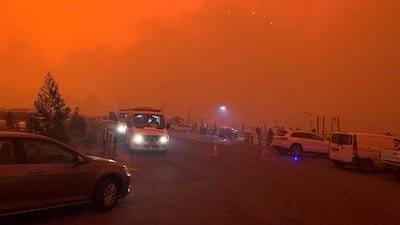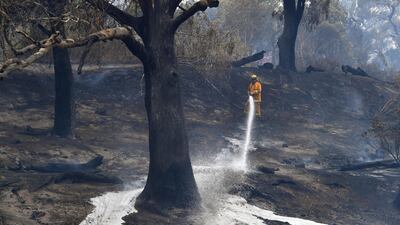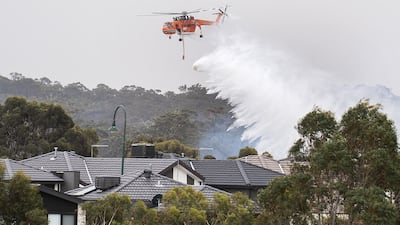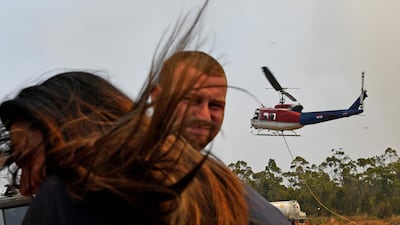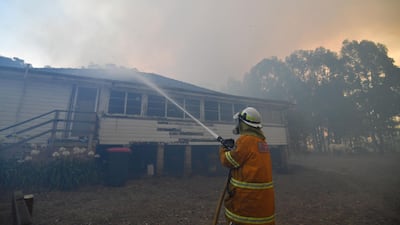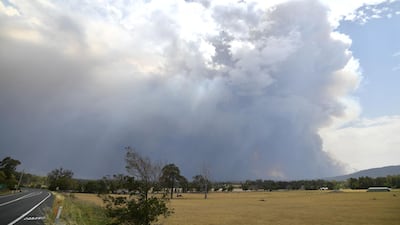Australia's bushfire crisis intensified on Tuesday as coastal towns across the south-east caught ablaze, forcing thousands of stranded tourists and locals to seek refuge on beaches.
Thick black smoke billowing from infernos in Victoria and New South Wales states turned the morning sky pitch black or choked the coastline in a haunting red haze.
Two people were killed as a fire ripped through the small community of Cobargo, taking the death toll since the devastating fire season began several weeks ago to 12.
There is no end in sight to the emergency as a searing heatwave makes it way up the coast and strong winds fan flames, wreaking havoc in popular tourist spots such as Batemans Bay during the peak summer holiday season.
"It's been a truly awful day," New South Wales Rural Fire Service Commissioner Shane Fitzsimmons said . "We've got literally hundreds, thousands of people up and down the coast, taking refuge on the beaches, in clubhouses, surf clubs."
The crisis gripping the world's driest-inhabited continent has affected all six states amid a prolonged drought.
Millions of hectares of forest and bushland have been destroyed in New South Wales alone. Fires are so intense they are generating their own weather systems, with dry thunderstorms sparking new blazes. A firefighter was killed on Monday when what authorities described as a "fire tornado" flipped the 10-tonne lorry he was in.
The emergency has placed scrutiny on Australia’s capacity to combat blazes that have spread over massive areas, pushing fire services largely manned by volunteers to their limits.
It’s also put international focus on the conservative government’s climate change policies, with environmentalists saying Prime Minister Scott Morrison’s support of the nation’s massive coal-export industry has worsened conditions.
Energy Minister Angus Taylor defended the government's record of tackling climate change in an op-ed published in The Australian on Tuesday, saying emissions had fallen in the past year and Australia was meeting its carbon-reduction targets.
“Shrill cries that we should be ‘ashamed to be Australian’ do not ring true with the quiet Australians,” Mr Taylor said. “That won’t stop some commentators telling us that we should feel guilty about our performance on emissions reduction. They are wrong.”
While fires have been burning for weeks, conditions worsened at the weekend as a heatwave pushed temperatures above 40 degrees Celsius in the south-east.
Authorities on Sunday urged some 30,000 holiday-makers in Victoria's East Gippsland region to leave.
Thousands did, but those who remained found themselves trapped as the blazes intermittently shut the main highway.
About 4,000 people were forced to gather on the foreshore or take to boats in the town of Mallacoota overnight and through much of the day as an out-of-control inferno bore down on the remote community.
Country Fire Authority chief officer Steve Warrington said a cheer went up from the jetty where many were sheltering as authorities in the town announced that the wind had changed and the main threat had passed.
Buildings in Batemans Bay caught fire as thousands sheltered on the beach and ash rained down on the picturesque beachside town of Merimbula.
"It's going to be a very long, difficult and dangerous night still ahead," Mr Fitzsimmons said. "It's going to be another difficult day again tomorrow."
